- Topics
- Campaigning
- Careers
- Colleges
- Community
- Education and training
- Environment
- Equality
- Federation
- General secretary message
- Government
- Health and safety
- History
- Industrial
- International
- Law
- Members at work
- Nautilus news
- Nautilus partnerships
- Netherlands
- Open days
- Opinion
- Organising
- Switzerland
- Technology
- Ukraine
- United Kingdom
- Welfare
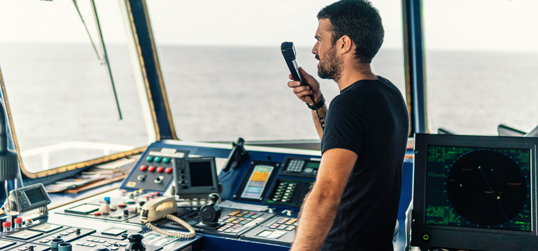
Shortcomings in the way Electronic Chart Display and Information Systems (ECDIS) are used by watchkeepers have been outlined in a key report on the application and usability of ECDIS – which may well reignite simmering debates over the need to modernise training. Deborah McPherson reports
Shortcomings in the way Electronic Chart Display and Information Systems (ECDIS) are used by watchkeepers have been flagged up by two national marine investigation bodies.
The findings of interviews with 155 deck officers – including masters and chief officers and other ranks – and other data gathered, are the result of a collaborative study on ECDIS use carried out by the UK Marine Accident Investigation Branch (MAIB) and the Danish Maritime Accident Investigation Board (DMAIB).
They show that while ECDIS does contribute to safe navigation, its introduction over the last 20 years has been problematic.
In investigations of groundings since 2008 – in which ECDIS were the primary means of navigation – the MAIB and DMAIB identified a mismatch between the way ECDIS was used and the intention of performance standards and system design. This prompted the two organisations to study ECDIS use from the perspective of practitioners.
The report doesn't make recommendations, but its aim was to generate an understanding of the practical application and usability of ECDIS and support future ECDIS design, training strategies and the development of best practices. The study used a qualitative methodology, primarily based on semi-structured interviews with 155 ECDIS users and observation data gathered between February and July 2018 during sea voyages in European waters on 31 ships of various types.
We need to look at the emphasis to ensure that seafarers are adequately trained in the equipment that they will use every single day of their careers Nautilus professional and technical officer David Appleton
In a joint statement the head of the DMAIB, Oessur Hilduberg, and MAIB's chief Inspector of marine accidents Andrew Moll said:
'Investigation of groundings since 2008 have repeatedly shown that where ECDIS was the primary means of navigation it was not being used to its full potential. There was a significant mismatch between the intention of the performance standards and system designers, and the way the watchkeepers were using the system. This study set out to understand whether the findings of accident investigations could be extrapolated as representing the wider marine industry and, if so, why.
'Unsurprisingly, the study found a wide spectrum of ECDIS integration and usage, and users were unanimous that the real-time positioning provided by ECDIS was a major contributor to safe navigation. However, thereafter the picture was bleak.
'Despite being in service for nearly two decades ECDIS could, at best, be described as being in its implementation phase. Specifically, most of the automated functions designed to alert the watchkeeper to impending dangers were not easy to use and lacked the granularity for navigation in pilotage waters. The consequent high false alarm rate eroded confidence in the automated warning, and most operators disabled the alarms or ignored alerts.'
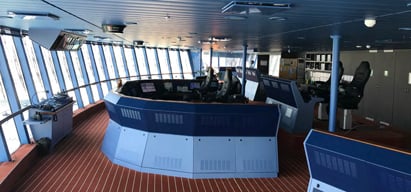
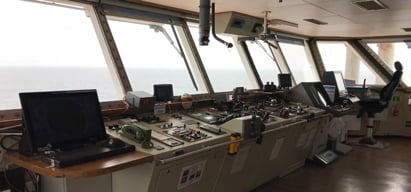
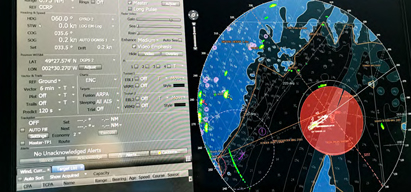
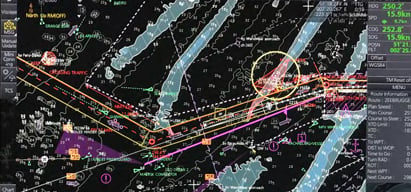
In an apparent nod to Type Specific training, Mr Hilduberg and Mr Moll added: 'To be an effective tool for safe navigation, ECDIS needs a high degree of operator input but many watchkeepers appeared to have limited understanding of the systems they were using, and in the main only used them to the extent they felt necessary '
In a reference to autonomous ships they said: 'Current system shortcomings, compounded by limited bathymetry data, make safe navigation challenging and do not augur well for future automation of the navigation function.'
Nautilus professional and technical officer David Appleton said the report backed up the findings of the recent Maritime Skills Commission Cadet Report which highlighted the need to modernise training: 'It goes without saying that cadets need to be taught traditional methods which they can use as back up in the event something goes wrong.
'However, at present we have a situation where cadets are spending weeks on traditional techniques and then have a week long ECDIS course tagged on the end of the training. We need to look at the emphasis to ensure that seafarers are adequately trained in the equipment that they will use every single day of their careers.'
Another key issue is that while Type Specific ECDIS training onboard is now mandatory, in addition to generic ECDIS training at college, there are doubts on how well the Type Specific training is carried out due to the sheer number of ECDIS manufacturers, he said.
In summing up the issues, Mr Hilduberg and Mr Moll said: 'Most importantly, if improvements are to be made, digital navigation needs to become the primary means of navigation across the industry.'
- Download the full MAIB/DMAIB report.
- Images: all in text images from MAIB/DMAIB report
Tags
More articles
MAIB report into cargo vessel grounding puts safeguarding on ECDIS and voyage planning in the spotlight
The UK Marine Accident Investigation Branch (MAIB) has advised ship managers Misje Rederi AS to review the number of watchkeepers on its vessels in a report into the grounding of the general cargo vessel Kaami on the west coast of Scotland.
Canada flags Arctic cruise risks from outdated maps and limited search and rescue
Concerns over the unique risks that the rapidly expanding expedition cruise industry poses to environmentally sensitive areas has been raised by Canada's Transportation Safety Board (TSB).
